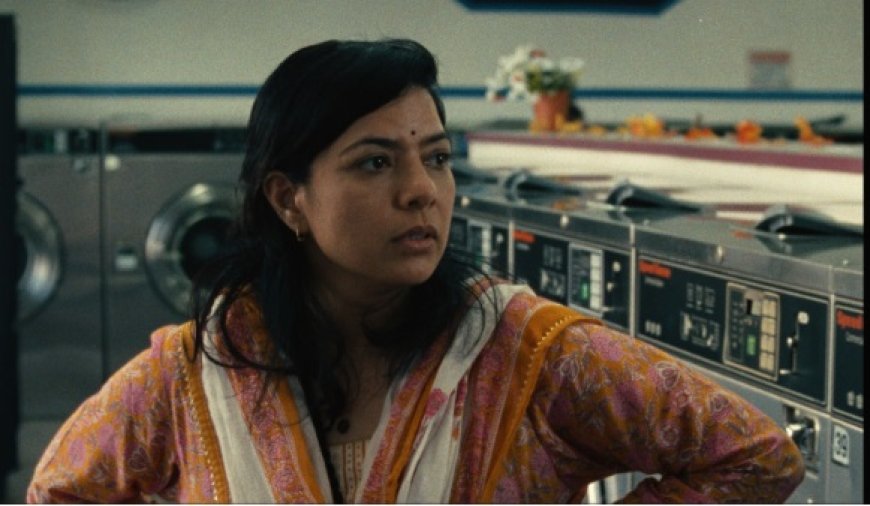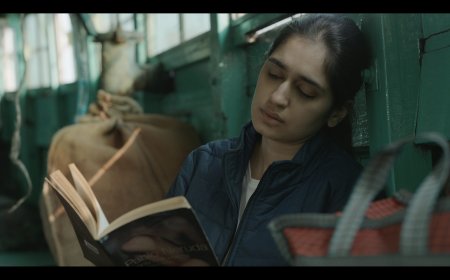Review: Hema (2024)

Ritvik Dhavale’s short film Hema narrates the immigrant experience of a woman through the intimate observation of her world, through the drudgery of her domesticity. As she relocates to Los Angeles from India with her husband and young son, she finds herself navigating the unfamiliar terrain of suburban America. This is a terrain geographically distant from her homeland, and she seems to be emotionally unmoored within her new life.
What makes this short film particularly stand out is the subtlety with which it examines the fragility of identity in transit. The protagonist is not depicted as a victim of displacement. She is thoughtful, restrained, quietly resilient, and most of the time lonely. The film follows her in small, everyday moments. Buying the groceries, preparing the meals, and often defending her little son from the rebukes of her husband. Through these fragments, we come to understand how a seemingly stable family structure can conceal an emotional void. Her husband, while not cruel, is emotionally distant, preoccupied with professional obligations and does not care much about the routines of domestic life. Their son is assimilating the nitty-gritty details of getting accustomed to the discipline required to study in an American school.
The narrative drifts smoothly but uncomfortably as Hema meets a young Marathi man. Theirs is a bond based on shared language and cultural memory, a subtle pull that is both spontaneous and constrained. This short sequence is one of fleeting comfort, transitorily filling the emotional gap between her past and present. Though this arrangement takes advantage of an old trope, the isolated woman in search of connection, the atmosphere is handled with a sensitive tension. It hovers on a tightrope of danger, suggesting the emergence of a refuge that will last only a moment, the formation of a friendship, or something threatening. It does not moralise, nor does it melodramatise. Instead, it allows the doubt to linger in the air. Hema's growing identification with this stranger is not about rebellion. It's about a search for meaning, for a sense of self that has not been negated into rout and dislocation.
The central performance by Rajshri Deshpande is so subtle that it says a thousand words through silence. There is a flash of unease, the softening of her countenance for a moment, the hesitation before speaking. It is a nuanced act, much like the toned-down style of the film. The cinematography by Marcus Patterson is just as precise and captures the psychological mood of the film aptly. Shot on film stock, it provides a lush, high-contrast appearance that adds to its ambience and sense of location. The cutaways to Hema's home in India, appearing at the beginning of the film, add a sense of memory, emotionally rooted in isolation.
Hema is a film about yearning and the constant search for one’s identity. It is a piercing meditation on identity, memory, and the small acts of courage that go into holding one's sense of self together in an alien land. It emphasises that recapturing individuality most often means possessing a little courage that will make one free.
Hema was screened at the recently concluded New York Indian Film Festival (NYIFF).
What's Your Reaction?

































































